The Fabelmans (2022)
Is Spielberg's personal biopic a Straussian warning against Jewish immigration?
For more movie kvetches check out Bright, the Whale, Prometheus, The Covenant, Warrior, A Time to Kill, Barbie.
In this Kvetch: mainly The Fabelmans (2022) but also Oppenheimer (2023), The Blue Eyed Samurai (2023), The Last Samurai (2003).
The Fabelmans
I’ve had a few people recommend Spielberg’s biopic The Fabelmans to me. I thought it was alright, and I wouldn’t have kvetched about it but for what I saw as a glaring streak of (unintentional?) anti-Jewish subversion in its second half.
The Fabelmans is most thrilling when it conveys the magic of creation. One would think that watching someone else’s homemade movies would be dull and watching someone else make their homemade movies would be even worse. Yet the magic of creation, wrapped in childhood discovery and parental delight shines through.
Like any good son, Spielberg can’t help but love his wicked mother. But she is barely restrained as a manic and pathologically selfish demon, almost a parody of decadent American “follow your heart” destructiveness.
But the most shocking and uncomfortable aspect of the movie is Spielberg’s resentment of early 1960’s Anglo California. There is something of the Woody Allen or Philip Roth in his attack — misshapen and complex yids thrust against the All-American perfect quarterbacks. But whilst Allen and Roth are self-deprecating and funny, Spielberg’s schmaltzy and self-righteous depiction of dwarfish Jews intruding on the Hellenic paradise of the California coast is something else.
Relocated to sunny California, young Sam Fabelman (ie. young Spielberg) arrives to school on his first day and tells his sisters, “It's like we got parachuted into the land of the giant sequoia people.”
Here Spielberg echoes Logan Roy of Succession, except Logan was one of the giants and Spielberg one of the dwarves:
America… I don’t know. When I arrived there were these gentle giants smelling of fucking gold and milk. They could do anything. Now look at them. Fat as fuck, scrawny on meth or yoga. They pissed it all away.
For the land that Spielberg portrays is a paradise of golden haired giants. Everyone is fit, attractive, Christian. This is from the Before Times, before the Flood, when Nephilim still walked the earth. Before the Civil Rights Act, before multiculturalism was a thing, before the Great Fattening of America. Rambam writes that the sons of Noah married into the Nephilim, attracted to their beautiful women — exactly as young Spielberg (Sam Fabelman) is seduced by his over-the-top but earnest Christian girlfriend. Spielberg’s lost paradise is shrouded behind sharp blue eyes and nasty jibes, locker room jocks who spark fear in his young Jewish soul. But it can’t hide the underlying charisma of that world. It’s a beachy America that contrasts with today’s favelas of greater LA or the fentanyl tent cities of San Francisco or the dysgenic anarchists of Portland. Moreover, it is the young Spielberg who sows discord in this paradise among these blond giants. He uses his creative impulse, his superior intellect to woo one to his side by presenting him as the Achilles of his school film portrait — and reaps his reward as this Achilles defends him, thumping another blue-eyed aggressor. I suppose on its face Spielberg is portraying a scary new world where his outsider younger self needs to stand up to bullies. But that’s just the flipside of this strange young boy marring an otherwise oiled machine of social dalliances and performing volleyball teams.
Young Fabelman’s deployment of his creative talent to win in the physical world is a broader Spielbergian flex. What is it but a nod to Jewish Hollywood’s grasp over America’s own conception of itself? One might even be suspicious of the exact portrayal of these scenes in The Fabelmans. It would not take much tweaking for the reality to look more like new kid Fabelman flaunting his wit and directorial muscle, dating the pretty girl and bullying the other kids ala the Liz Lemon Delusion1, where Lemon misremembers her high school years as being the nerdy bullied kid — the opposite of reality:
I’ve written before about the close-to-home depictions of Jewish vs WASP families in Annie Hall or the immigration-pessimistic parody of multiculturalism depicted in The Nightmare Before Christmas. The Fabelmans could be seen in a similar light. The Jewish family is broken where the local families are presumably whole. A manic, selfish libertine mother and a brilliant father heralding the age of the computer — but a cuckold. If this were a film made by a Jew hater I might scoff at it. Made by Spielberg, I choke on my tongue.
Perhaps the highlight of the film is the end. David Lynch as the cranky hero director John Ford whom young Spielberg gets to meet.
What wisdom does he impart? Challenging him to consider two film portraits hanging on his wall, he tells him:
When the horizon's at the bottom, it's interesting. When the horizon's at the top, it's interesting. When the horizon's in the middle, it's boring as shit. Now, good luck to you. And get the fuck out of my office!
A startled young Fabelman scurries out of the office but not before a thank you!
My pleasure, says the miserable old goat.
Oppenheimer
Strong fidelity to the American Prometheus book, which is maybe why it didn’t blow me away? I knew he poisoned the apple, learned Dutch in six weeks and read the Bhagavad Gita in Sanskrit. The casting of his love interest Jean Tatlock was annoying and sexless. I enjoyed the undying wrath portrayed by his wife in old age, icily scowling at one of Oppey’s traitors. That felt real. A woman’s wrath does not abate.
I think essentially some version of this tweet thread is correct.
A saw some complain when the movie was released that the last hour was about politics and not about the actual making of the bomb. And I think they missed the point.
The movie was not about the great feat of Los Alamos, the engineering and social miracle on that mesa.
It was about Great Men, and one Great Man in particular, who lived a world apart among us, took what women he wanted, rode horseback against the New Mexico plains. And that last hour of the film was the binding of Prometheus to his rock by the men he had gifted fire to. The binding of a Great Man in the web of bureaucrats and small men with colossal egos.
When General Groves in Oppey’s clearance hearing says under current AEC regulations he wouldn’t hire Oppey or any of those guys again, it means the window of greatness was brief and over. For a moment in time the need was great and the wills of Great Men could coalesce to pierce the stultification of Bureaucratic Lilliputians. And with victory and the bomb the small men could once again afford to lock away their giants and gaze back down towards their small lives.
The Blue Eyed Samurai
What a fantastic new Netflix show. The hero is deeply charismatic, the action riveting, the story beautifully crafted, the dialogue smart.
And the strange storytelling and sincere flashback of Episode 5 — I haven’t felt that way about an episode since the genius monologue episode of Bojack Horseman, Free Churro.
Hugely optimistic that Netflix can make something like this today. Irreverent, funny, smart. Yes it’s got a female protagonist superhero. And ok the white guys are the ultimate bad guys… okay maybe it does make sense for Netflix to make it. Still, wonderful.
I’m kind of waiting for someone to tell me what a basic b*tch I am for liking this and actually it’s really trashy — I don’t know and I don’t care I thought it was fantastic. Imperfect, but so fun.
The protagonist is some strange blend of all the best women of Kill Bill:
My crazy conspiracy theory is she’s aesthetically based on Jennifer Connelly:
Honestly I just want to watch a lot more samurai schtick now.
The Last Samurai
So I did. I rewatched the most gringo samurai movie on the map. And it was awesome. I used to find Tom Cruise so passé but I’ve come to deeply appreciate him. He is basically excellent in everything.
The Last Samurai may be the purest lament for the world that was lost with the industrialisation of war. A lost warrior code that was noble and fundamentally good for men.
The samurai share that with other warrior peoples like the Comanche, who were also extinguished around the same time.
In the new world fat, cowardly Omura defeats noble powerful Katsumoto. So too today we might imagine slovenly video gamers behind drone controls annihilating endless braves. No honour, no nobility, just the inevitable and relentless logic of industrial might.
But aside from the deep, romantic recognition of a noble warrior spirit that was lost, of course the samurai were the bad guys and Omura the good. The samurai resisted technology and modernisation — disastrously — and Omura was correct in embracing modernity, for his military as well as for Japan. So it proved out with the rise of fascist imperial Japan, and then later with modern Japan. (On the other hand, we might ask whether we have called it too soon — let’s see what happens with Japan’s catastrophically low birth rate.)
The idyllic life portrayed in the village is enviable — who doesn’t want their own beautiful and infinitely elegant Japanese bride, hair and nails perfect as she hoes the garden patch waiting for her warrior man to return.
But of course tilling the earth was hard and insufficient and we are grateful for fertiliser and machines to come and industrialise that process.
The romanticisation in The Last Samurai is deeply seductive but fake.
Well, almost fake. Something in men, and so something in society, probably did die with the last samurai and all the last castes of warrior men. There are no warrior men anymore, only domesticated men and their machines.
Don’t bother googling the Liz Lemon Delusion — I made it up. Take it. It’s yours now.


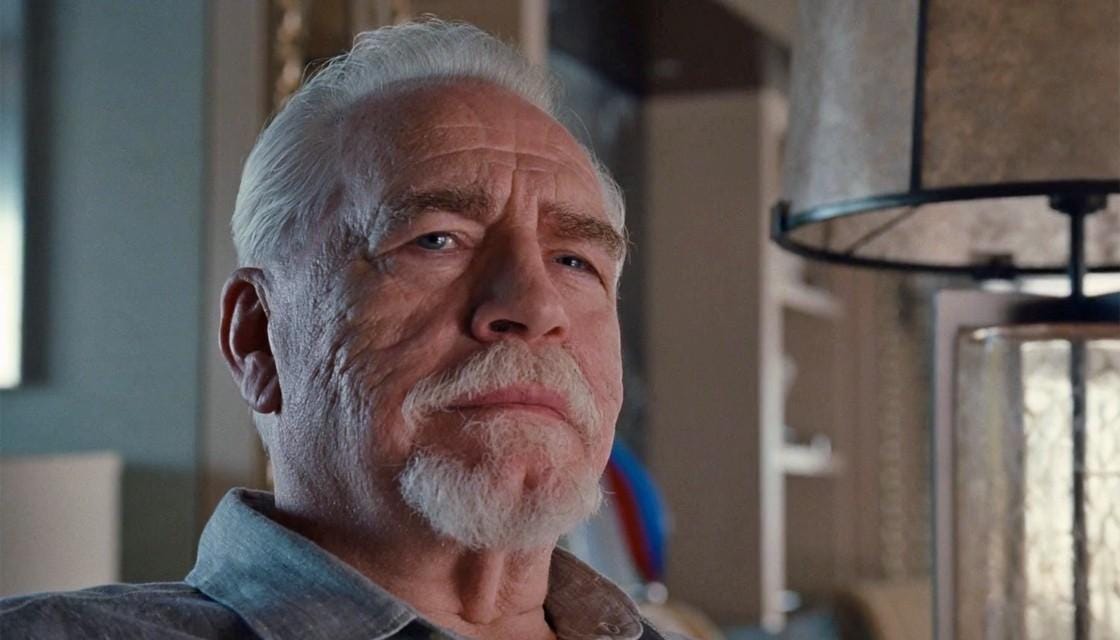
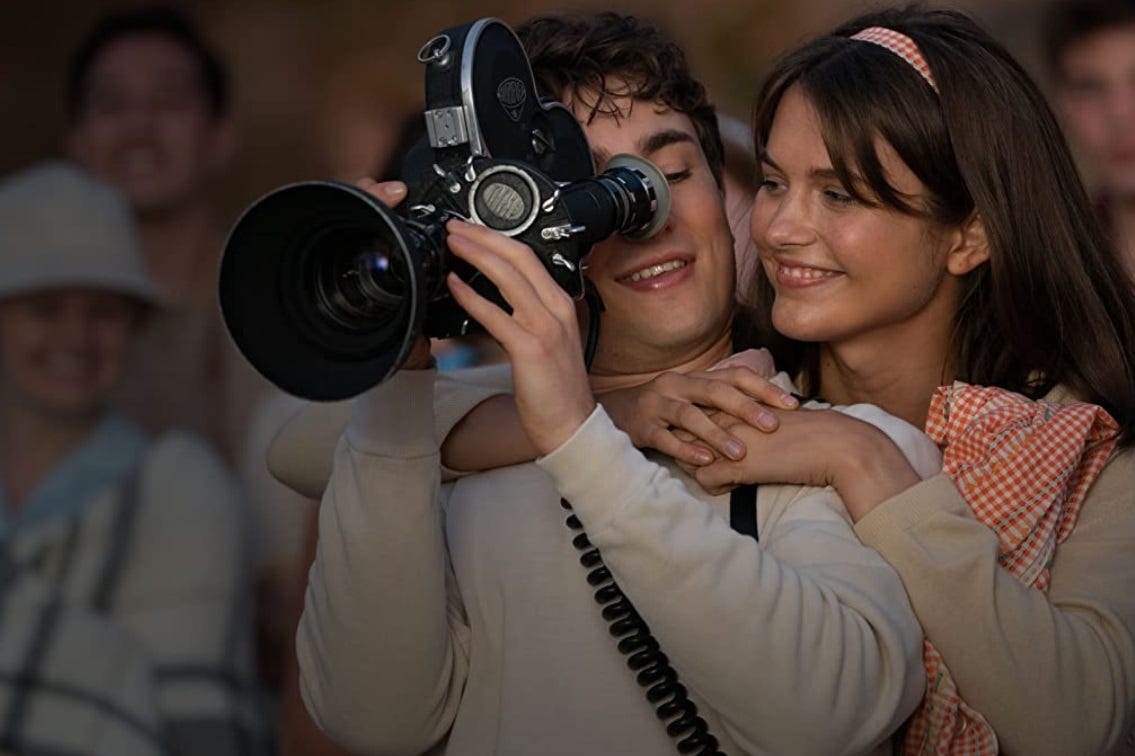
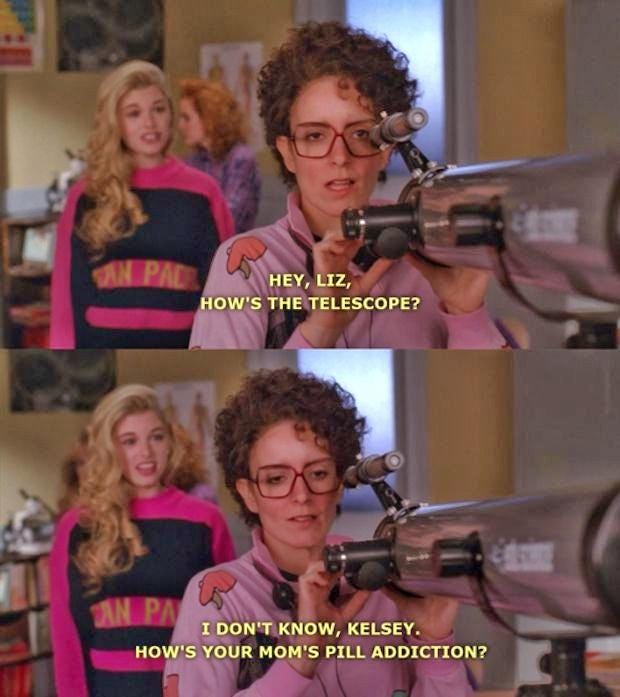
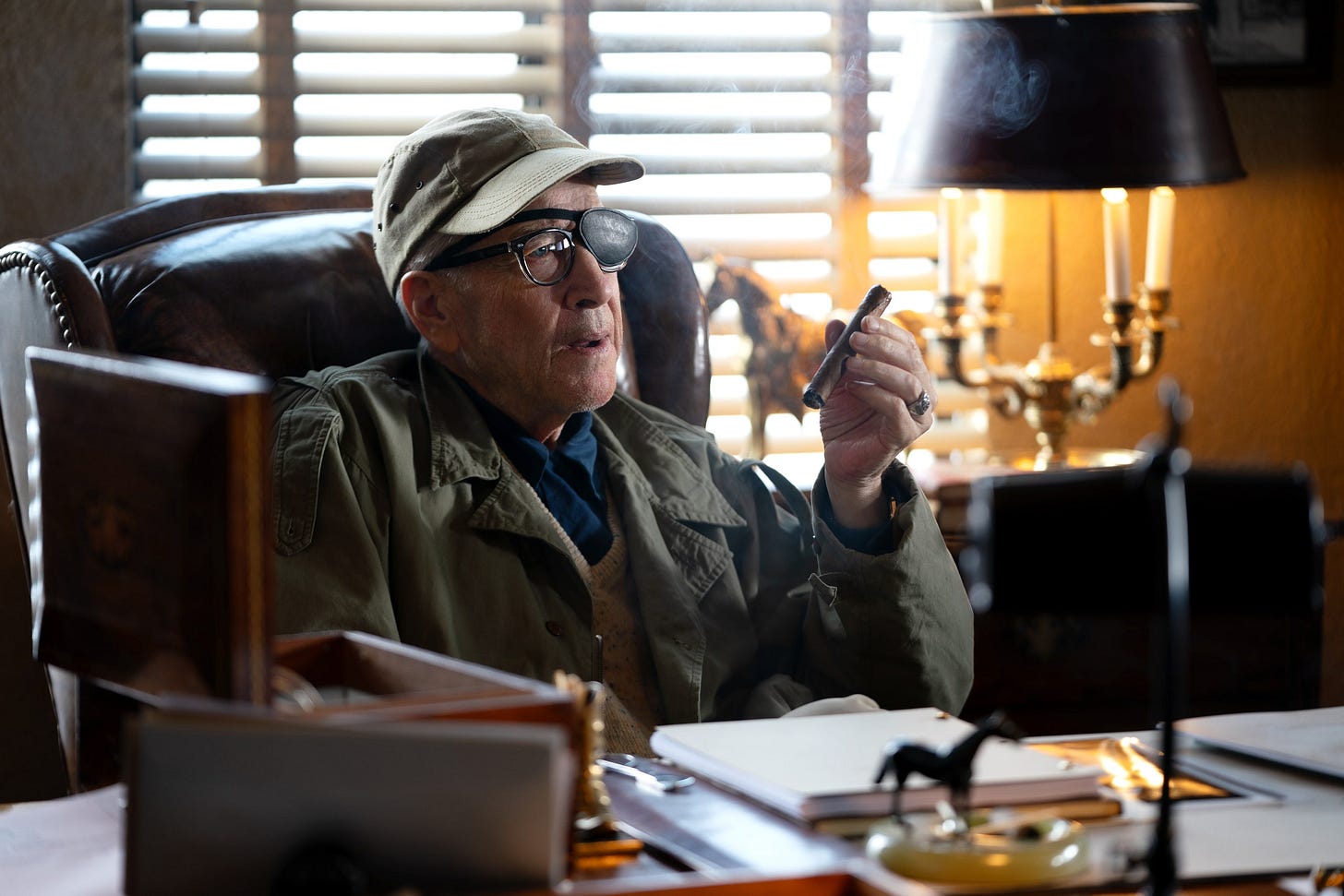
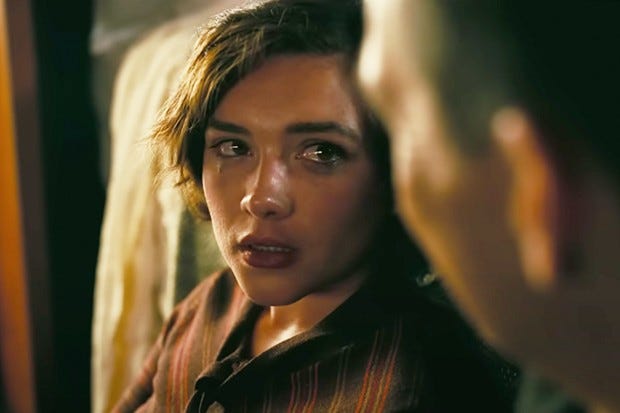

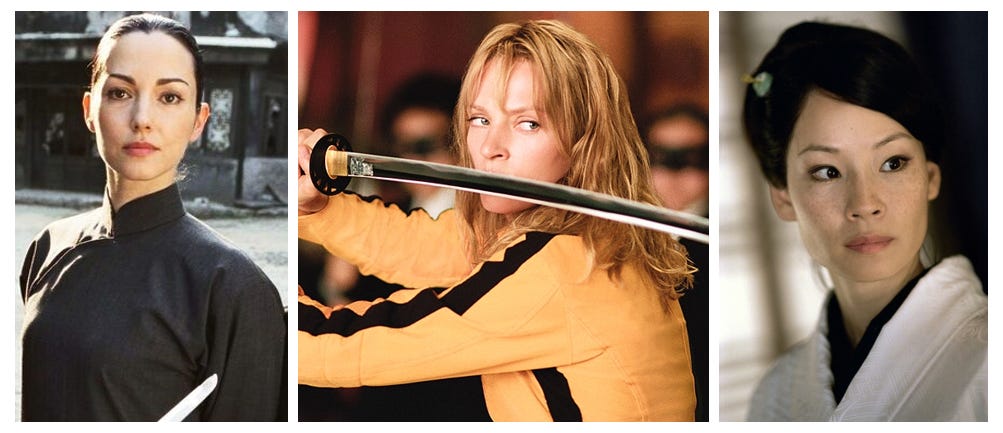




I really resent the idea that Jewish kids were all wimps and small. In high school I was 215 pounds and was the starting nose tackle on the football team. I had a number of Jewish friends who made up most of the swimming and tennis teams which often won state championship during my adolescence. I guess the small dorky kids were the one who ended up making movies but there was a large percentage of us who were not like that.
Will have to watch ‘Oppy’ after reading that. Just finished Blue Eye Samurai. Loved that it didn’t always embrace happy endings or over-romanticise the era - the importance of art - Great Women - that it was a cartoon, I’ve often been dismissive of the genre - the references to Musashi.